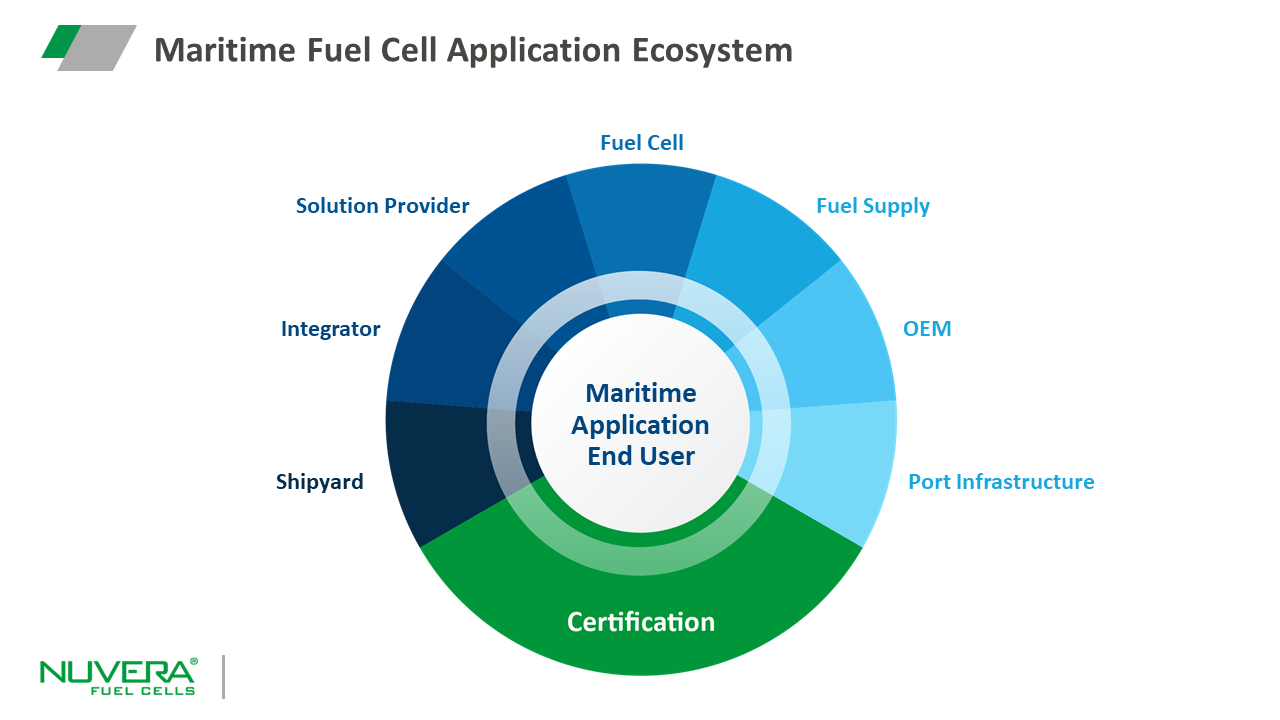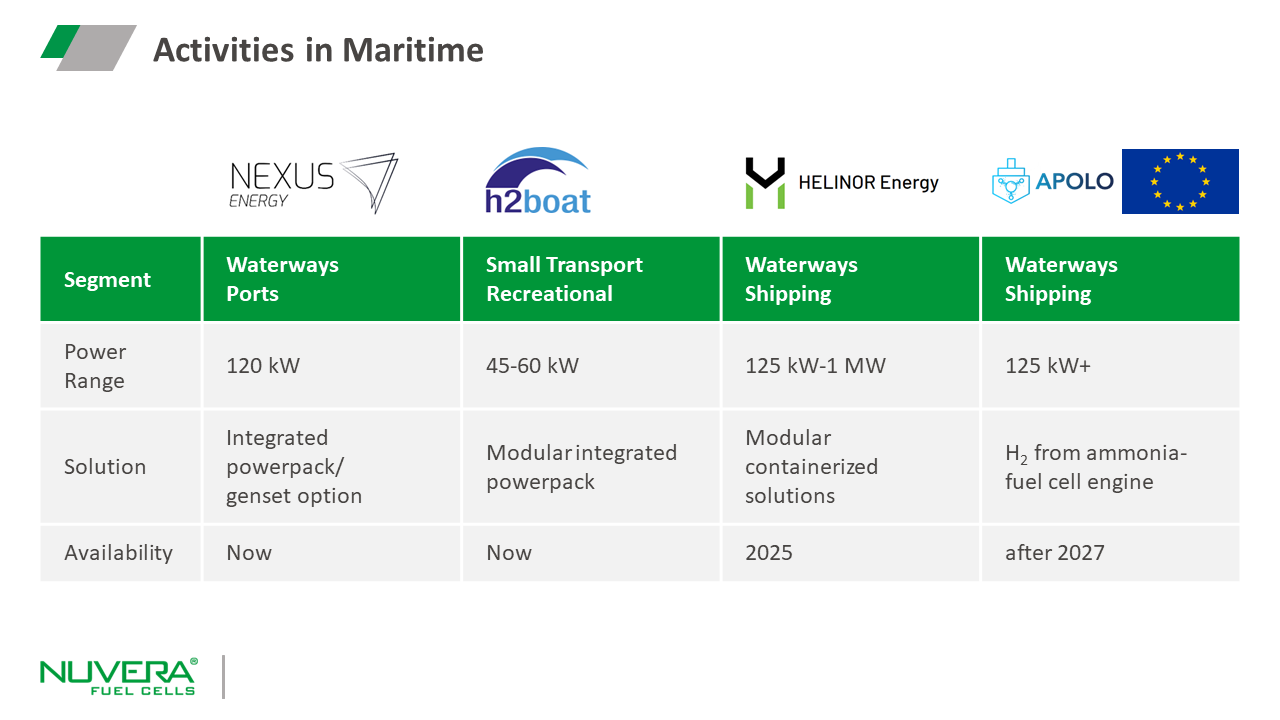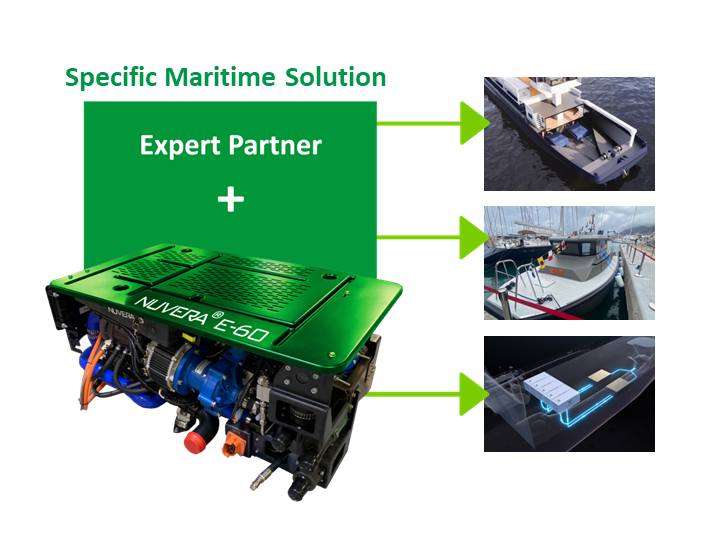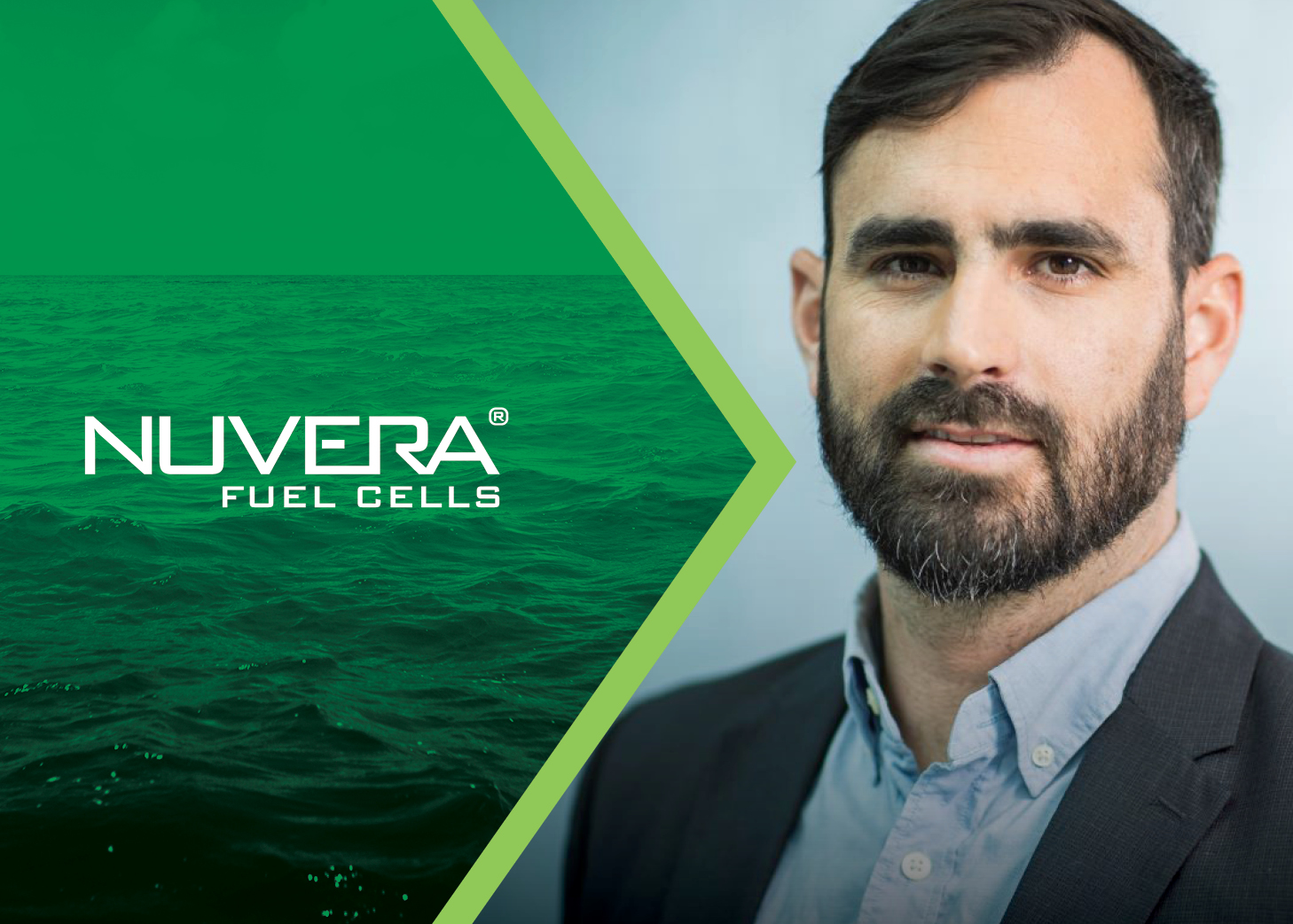Santiago Bresani, Sales & Business Development Leader, Nuvera Fuel Cells Europe
Maritime shipping is crucial to the global economy, with sea-going transportation serving as the means for moving 90% of goods around the world. The maritime industry encompasses an international network of ships and ports that makes trade and transportation possible – and require substantial amounts of energy for cargo-handling equipment, ground transport, electricity generation, and vessel propulsion.
Given its massive energy usage, the maritime industry is faced with the crucial challenge of reducing its substantial carbon footprint in a delicate ecosystem. Currently, shipping is responsible for roughly 3% of global greenhouse gas emissions, translating to over one billion tons of CO₂ emissions annually.
The European Union (EU) and the International Maritime Organization (IMO) have set ambitious goals to significantly reduce carbon emissions from ships. By 2050, the EU aims for an 80% decrease compared to 2020 levels, while the IMO targets a 50% reduction in greenhouse gas emissions from international shipping. These ambitious targets demand a dramatic shift in how we power our vessels, and the urgency for adopting cleaner technologies has never been more apparent.
Fuel cells offer a compelling solution for an industry that’s particularly difficult to decarbonize. They generate electricity through an electrochemical process, using hydrogen as fuel and emitting only water vapor as a byproduct. This results in zero harmful emissions like sulfur oxides and nitrogen oxides, significantly improving air quality and protecting vulnerable marine life.
Hydrogen fuel cell technology opens the realm of possibilities for decarbonizing sea-going transportation, but doesn’t address all issues – for example, the transport of hydrogen. Recently, there have been considerable efforts to use methanol or ammonia as hydrogen carriers for fuel cells in the maritime industry, based on experience dealing with these fuels.
The complex shipping market includes diverse and uniquely demanding environments, including deep sea and inland waterways, as well as stringent regulatory frameworks that vary by region or locality. Certification processes are generally lengthy and rigorous, creating hurdles for the adoption of new technologies.
Taking these factors into consideration, Nuvera has developed a comprehensive understanding of the challenges facing maritime application end users.

Nuvera’s strategy focuses on leveraging our production-ready fuel cell technology in partnership with established players in different maritime markets. Because these markets span multiple applications, power levels and uses, we understand that “one size does not fit all.” A collaborative approach allows us to provide tailored solutions to specific uses, helping to create a smooth integration of our technology into existing infrastructures while meeting maritime regulatory requirements.
Our commitment to innovation in the maritime sector is evident in recent initiatives:
- Joining the APOLO EU Horizon funded project: This project aims to demonstrate the viability of fuel cells for inland waterway vessels.
- Signing a development contract with HELINOR Energy: We’re collaborating to develop modular fuel cell solutions for various maritime applications.
- Working with experienced players: We’re partnering with industry leaders like H2Boat in Italy and Nexus Marine in the Netherlands, combining our expertise with their established networks and knowledge of specific sub-markets.

These relationships are accelerating the transition to cleaner maritime solutions by leveraging the expertise of established players combined with Nuvera’s proven technology. Each project underscores our dedication to contributing to maritime decarbonization efforts and reflects industry confidence in the potential of fuel cells to provide zero-emissions propulsion and auxiliary power.
With over two decades of experience in fuel cell development and deployment, Nuvera offers a solid foundation of knowledge and expertise for our customers to build upon. Nuvera’s stable ownership structure provides long-term security and fosters trust, allowing our partners to confidently invest in creating specific solutions tailored to their needs.
As Nuvera’s fuel cell engines earn their place among the most promising technologies in the industry, we’re continuing to solidify Nuvera’s place in the maritime industry. Learn more about Nuvera’s activities here.

The journey towards a decarbonized maritime industry is a long one, but fuel cells offer a powerful catalyst for this transition. Through collaboration, innovation, and a shared commitment to sustainability, we can navigate towards a cleaner future for our oceans and our planet.
If you are considering hydrogen adoption and evaluating fuel cell engine products for your maritime application, please don’t hesitate to reach out to our commercial team or contact Santiago personally on LinkedIn.

